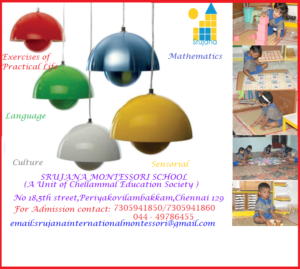FAQ
- What is the Montessori concept of freedom in the classroom?
- Does the Montessori environment foster creativity?
- Why are Montessori children generally self-confident, out-going, and self-reliant?
- What happens when a Montessori child enters the public school system?
What is the Montessori concept of freedom in the classroom?
The Montessori environment includes a fine balance between structure and freedom. The concept of freedom carrying responsibility is gradually introduced from the time a child enters school. The Montessori children have a wide variety of constructive paths to choose. They gain the skills and tools to accomplish their choices and they are taught the social values that enables them to make enlightened choices. Freedom does not involve being able to do what they want to do. It does involve being able to distinguish what is constructive and beneficial and being able to carry that out.
Does the Montessori environment foster creativity?
Experience tells us that “creating” cannot be taught and that the child’s environment tends to either foster or restrict creative potential. Children, therefore, need freedom to develop creativity and for as long as they like, solutions and ideas and select answers on their own, and to communicate and share their discoveries with others at will. Children in the Montessori classroom are free from judgement by an outside authority that so inhibits the creative impulse.
Why are Montessori children generally self-confident, out-going, and self-reliant?
Montessori is based on a profound respect for child’s personality. Children work from their own free choice and are allowed a large measure of independence that forms the basis of self-discipline.
As children progress at their own pace and successfully complete the self-correcting exercises, they develop confidence in their ability t understand their achievement.
What happens when a Montessori child enters the public school system?
The habits and skills, which a child develops in a Montessori class, last a lifetime. Since Montessori education is successful in developing concentration, self-discipline, a love of learning and social skills..the child is better equipped to enter new situations and to easily adjust to the traditional school environment. Good habits that are acquired early in a child’s life result in a lifelong pursuit of knowledge.


